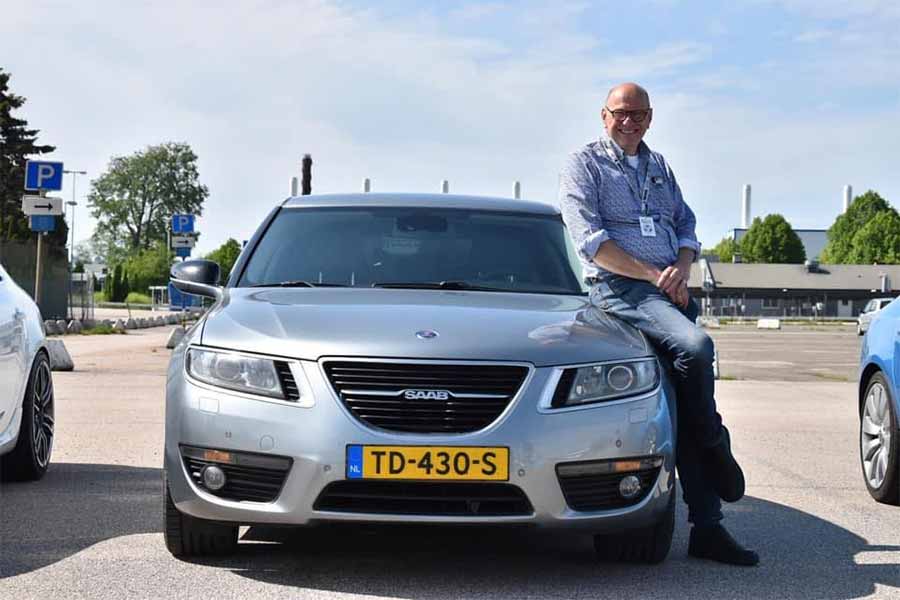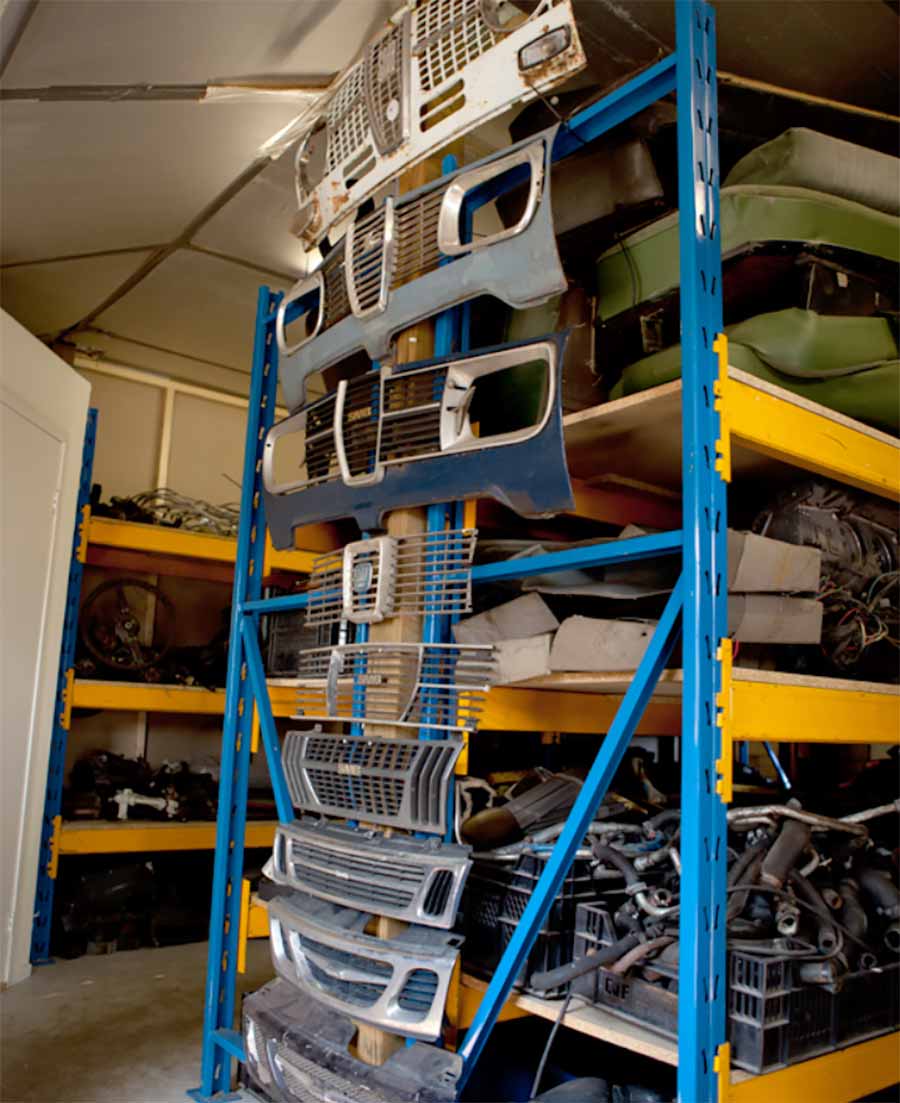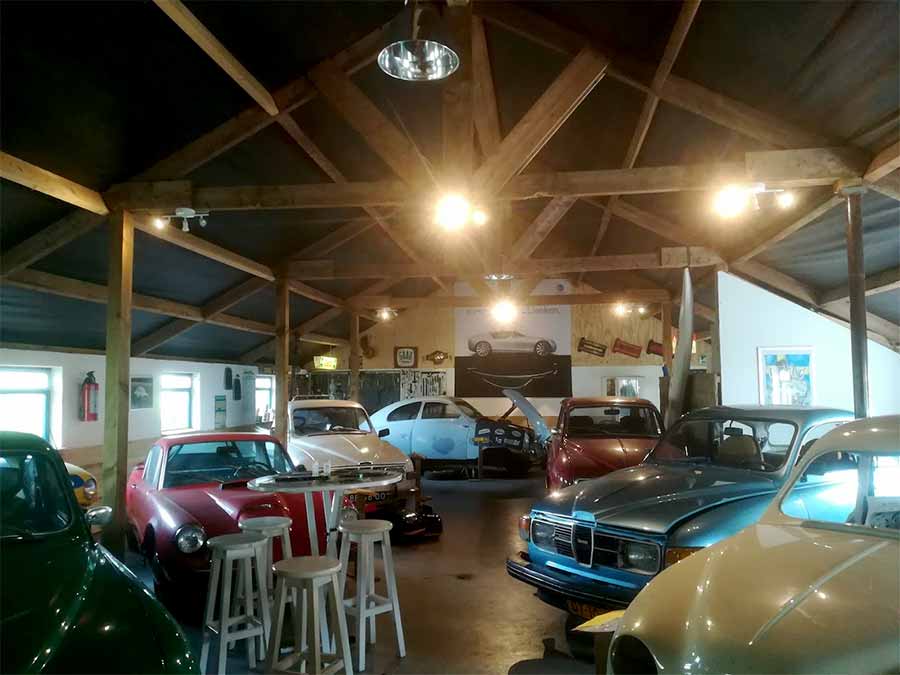Table of Contents
- 1 A Love Story with Saab: How It All Began
- 2 From a Hobby to a Collection: Building a Saab Museum
- 3 The Unique Appeal of Saab: What Makes It Special?
- 4 The Fall of Saab: A Story of Missed Opportunities
- 5 Preserving the Saab Legacy: A Community Effort
- 6 A Glimpse into the Future: The Uncertain Fate of Saab
- 7 The Enduring Appeal of Saab: Why It Still Matters
Saab Enthusiasm in the Netherlands: A Legacy of Passion
The story of Saab enthusiasts in the Netherlands is one that highlights the deep and enduring connection between a nation and a brand that has long ceased production. Johan Tammeling’s private museum in Dalfsen ‘Takt2Aero,’ stands as a testament to this passion. Tammeling, who first became enamored with Saab in the early 1980s, has since curated a remarkable collection of Saabs, housed in a converted barn.
In the early 1980s, the Tammeling family acquired their first Saab, a green 1974 Saab 96 V4 purchased under less-than-ideal circumstances—at night, a time when buying a car is generally discouraged. Fortunately, the gamble paid off, and the vehicle became a reliable companion, clocking over 300,000 kilometers before it was sold in 1993. The car was reacquired in 2011 and, with over 800,000 kilometers on the odometer, continues to serve the family daily. Over the years, Johan Tammeling has meticulously built a collection of rare Saabs, restoring them with parts sourced from Sweden and other locations, all housed in a specially converted barn in Dalfsen, where his museum now keeps the Saab legacy alive.
This museum is not just a display of vehicles; it’s a tribute to the unique culture and dedication that Saab has inspired worldwide, especially in countries like the Netherlands, where the brand’s distinctiveness has always been celebrated. This article reflects on the insights shared in a recent Autoweek magazine article.

A Love Story with Saab: How It All Began
Johan’s journey with Saab began in 1982, spurred by a wedding that almost didn’t have a Saab at its center. His initial search for a Saab as a wedding car led him to a dark blue 1978 Saab 96, which, despite being in poor condition, ignited a lifelong passion.
Although he ended up marrying in a Mercedes, the Saab 96 lingered in his mind. In 1983, Johan’s perseverance paid off when he acquired a green 1974 Saab 96, despite purchasing it in less-than-ideal conditions. This car became a reliable companion, covering over 300,000 kilometers in a decade. Johan’s story is not just about collecting cars; it’s about the emotional connections and memories that these vehicles represent.

From a Hobby to a Collection: Building a Saab Museum
What began as a personal passion soon evolved into something much larger. Over the years, Johan expanded his collection, acquiring classic Saabs through a combination of personal purchases and fortunate finds from others who were ready to part with their beloved vehicles. His approach to collecting was not just about acquiring cars but about preserving history.

Johan’s museum, named ‘Takt2Aero,’ reflects his commitment to maintaining a diverse and functional collection of Saabs. Each car has a story, from the 1958 Saab 93B he acquired at a fraction of its value to the rare Monte Carlo dashboard he found on one of his many trips to Sweden.
The Unique Appeal of Saab: What Makes It Special?
For Johan and countless other Saab enthusiasts, the appeal of Saab lies in its unique features and design philosophy. Saab’s reputation for safety, innovation, and quirky features like front-wheel drive, heated seats, and headlamp wipers made it a brand that stood out from the competition. These characteristics, combined with the brand’s association with professions like architects and doctors, added to its allure. Even as the brand faded from the global market, the values that Saab represented—individuality, safety, and innovation—continue to resonate with its loyal fanbase.
The Fall of Saab: A Story of Missed Opportunities
The decline of Saab is a story of missed opportunities and changing market dynamics. Johan and his fellow enthusiasts often reflect on how the sale to General Motors marked the beginning of the end for the brand. The decision to sell Saab to a corporate giant that didn’t fully understand or appreciate its unique qualities led to a series of missteps that ultimately resulted in the brand’s demise.
Despite attempts to revive the brand under various ownerships, including the brief and troubled tenure of NEVS, Saab never regained its former glory. Johan’s museum, and others like it, serve as a poignant reminder of what could have been had different choices been made.
Preserving the Saab Legacy: A Community Effort
Johan’s museum is more than just a personal project; it’s a community hub for Saab enthusiasts. Regular trips to Sweden for parts, participation in Saab festivals in Trollhättan, and local gatherings at the museum all contribute to keeping the Saab spirit alive.
Johan’s son, who has taken up the mantle with his own Saab maintenance business, ensures that the legacy continues into the next generation. The museum also serves as a meeting place for the Saab Classics Association of the Netherlands, hosting annual events that bring together Saab lovers from across the region.
A Glimpse into the Future: The Uncertain Fate of Saab
As the automotive world moves increasingly towards electric vehicles, the future of the Saab name remains uncertain. NEVS, the company that inherited Saab’s DNA, has teased the possibility of launching the Emily GT, an electric car that could carry forward Saab’s legacy.
However, as Johan notes, this is far from certain. The decision by Saab’s aerospace division to distance itself from the automotive brand means that even if the Emily GT does reach production, it may not bear the Saab name. For now, enthusiasts like Johan continue to celebrate the brand’s rich history while acknowledging the challenges that lie ahead.
The Enduring Appeal of Saab: Why It Still Matters
Despite its disappearance from new car showrooms, Saab continues to matter to those who value individuality, safety, and engineering excellence. Johan’s story, and the stories of others like him, demonstrate that Saab’s legacy is not just about the cars themselves, but about the values they represent.
As long as there are people who appreciate what Saab stood for, the brand will continue to live on in private collections, enthusiast clubs, and the memories of those who drove these remarkable vehicles. In this way, the Saab spirit remains very much alive, even in a world that has moved on to other things. For more details on Johan’s incredible journey and his remarkable museum, you can refer to the original article on Autoweek magazine.












They are worth a fortune there, but with the exception of a few very rare ones here, not worth much.
People who appreciate excellent engineering and build quality.
Still around 35.000 on the road in The Netherlands. Lot’s of specialist garages too. 💪🏻